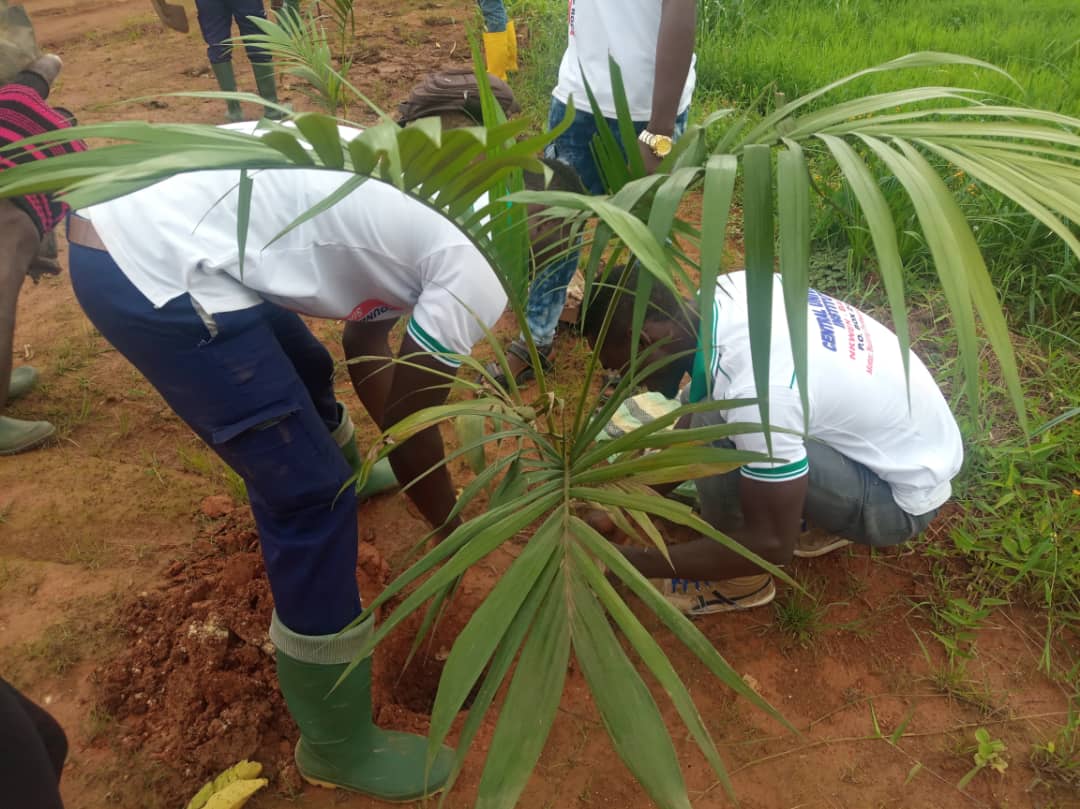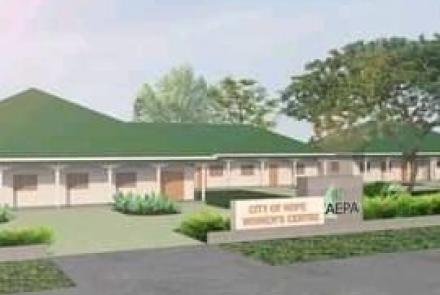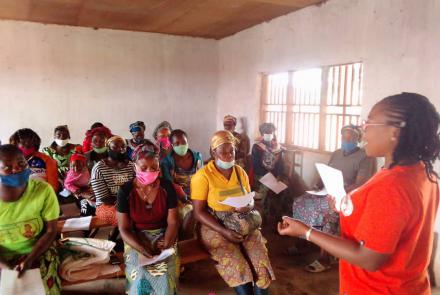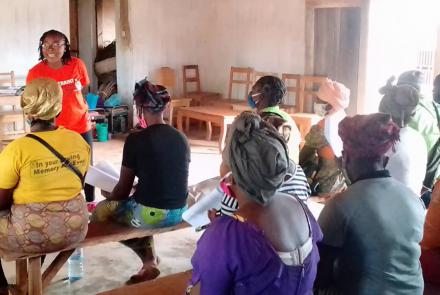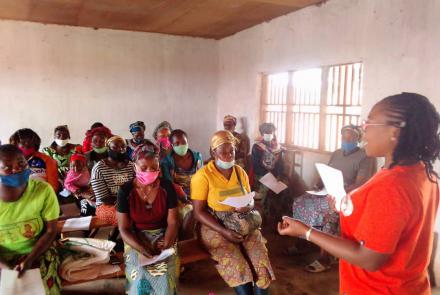Using Agroforestry to Support Women and Girls in the Balikumbat Subdivision Combat Soil Deterioration and Climate Change
In 2013, CAEPA Cameroon received a much-needed grant from the African Women’s Development Fund to finance a project entitled “Supporting women and girls in the Balikumbat subdivision combat soil fertility deterioration and mitigate the impact of climate change through agroforestry for crop production.” This project entailed training beneficiaries in the techniques of agroforestry systems, educating community members on climate change mitigation and providing women farming groups with improved agricultural equipment.
This agroforestry initiative targeted women farmers within the Balikumbat subdivision in North-West Cameroon. Women in this area practice subsistence farming to feed their families, but are often trapped in a vicious cycle of poverty as they do not have the right to own land or cultivate cash crops. Moreover, severe land degradation from climate change, poor pasture management and overgrazing have negatively affected soil fertility and food security.
To ensure that women in need were reached by this initiative, CAEPA identified and restructured 40 women common initiative groups and registered four new women community groups, some of which included the Mbororo minority. CAEPA trained these groups on seed collection and storage, nursery creation, farmland tree integration, windbreak and firebreak establishment, A-Frame construction, contour planting and alley cropping. Overall, 522 women farmers from the Balikumbat region were trained on agroforestry techniques and provided with indigenous tree seedlings for their own farms. As a result of the project, 55 women farmers from five communities in Balikumbat incorporated agroforestry principles in their farms, comprising 24 hectares of land with a total of 3,251 trees.
A critical facet of this project focused on climate change awareness and mitigation. CAEPA conducted four climate change sensitisation sessions for six school environmental clubs and 43 common initiative groups, reaching a total of 1,482 individuals. Understanding how to mitigate the impacts of climate change is fundamental to enhanced agroforestry and food security practices and CAEPA is proud to have disseminated this essential knowledge within the Balikumbat communities.
The project achieved other important outputs, such as the establishment of five nurseries and the planting of 500 trees in six Balikumbat schools. CAEPA also provided farming equipment to 20 eligible women farming groups to bolster their ability to farm efficiently and sustainably.
Through this wide-ranging project, marginalized women of Balikumbat have enhanced their farming productivity and awareness of climate change. As a direct result, women farming groups harvested an additional one tonne of maize per hectare and now have the necessary skills to check groundwater pollution, prevent soil erosion and utilise sustainable cropping systems. Community members, particularly women, reported that the trainings provided them with a new perspective of partnership in economic development. With the support given to women’s farming groups, men in Balikumbat now view women as agents of development and success, which is essential to improving the opportunities and living conditions of women in this area.
Because women, especially widows, play a key role in the agricultural and informal sectors in Balikumbat, facilitating their access to land control and farming education is integral to their empowerment. CAEPA remains cognisant of the continued need for intervention and is grateful to the African Women’s Development Fund for their generous grant, through which this project was made possible.

